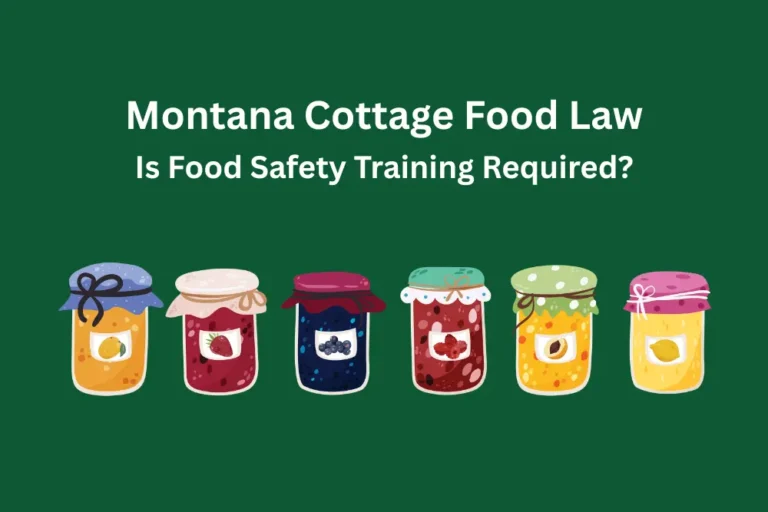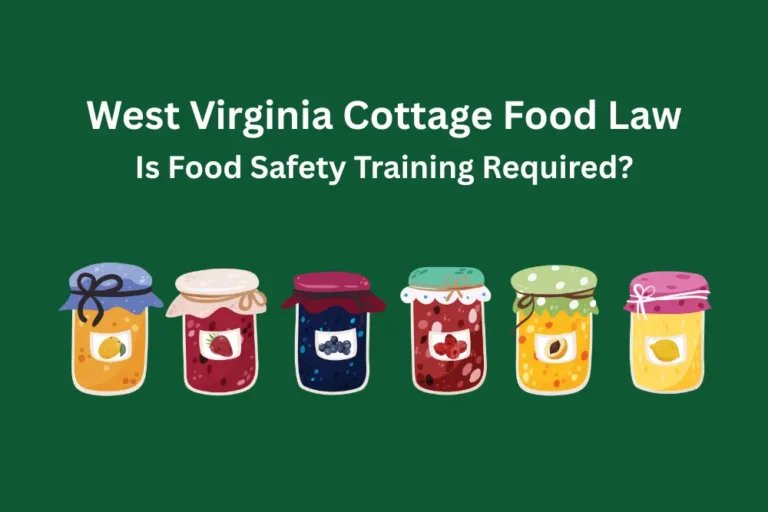New York Cottage Food Law: Do You Need Food Safety Training?
Article Summary
Selling homemade food in New York? The cottage food law doesn’t require food handler training, but getting your card can still give your business an edge. This quick video explains why it’s worth it, what you’re allowed to sell, and how to get your food handler card online with FoodSafePal.
Selling homemade food is a great way to share your products and earn extra income, but every state has its own rules to follow.
Each state defines its cottage food or home processing laws — what foods you can make, where and how you can sell them, and whether you need food safety training.
This article explains New York’s Home Processor Exemption and whether food safety training is required to sell homemade food.
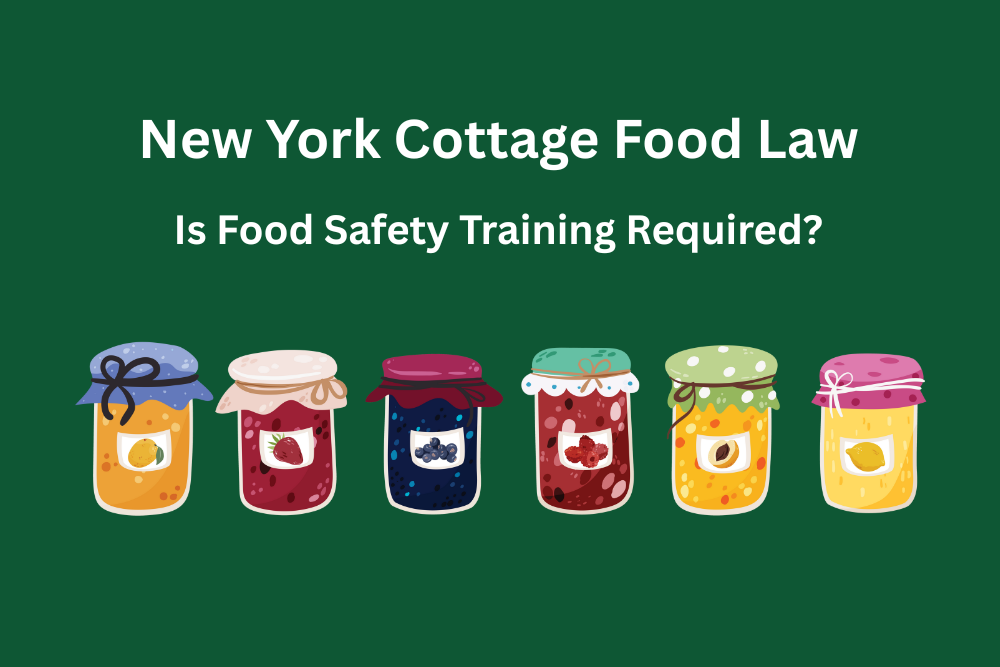
New York cottage food law
New York’s cottage food system operates under what’s known as the Home Processor Exemption. It allows individuals to make certain low-risk foods from their home kitchen without needing a license.
You can make, package, and label approved foods in your home kitchen and sell them within New York State. Sales can take place directly to consumers or through wholesale to local establishments such as restaurants, grocery stores, and cafés.
Sales are allowed at farmers markets, craft fairs, roadside stands, or online, as long as delivery and sales remain within New York State.
If your home uses a private well, you must include water test results showing the water is safe (negative for total coliform and E. coli) when submitting your registration.
Here are examples of approved foods:
- Breads, rolls, bagels, muffins, biscuits, and scones (with dried or high-acid fruits)
- Cookies, brownies, biscotti, and cakes (no homemade cream cheese or buttercream frostings)
- Double-crust fruit pies (no custard or cream pies)
- Granola, trail mix, and snack mixes (using commercially roasted nuts)
- Jams, jellies, and marmalades made from high-acid fruits
- Candy such as fudge, peanut brittle (with roasted nuts), caramel corn, and toffee
- Popcorn, pretzels, crackers, and rice krispie treats
- Dried herbs, spices, or repackaged dry goods such as pasta or soup mixes
- Coffee beans and dried fruits (repackaging only — roasting or drying not allowed)
Foods that require refrigeration or involve potentially hazardous ingredients — like meats, fish, dairy, alcohol, or fresh vegetables — are not allowed.
Examples of prohibited foods include:
- Cheesecakes, cream pies, and cream-filled pastries
- Pickles, salsas, sauces, and relishes
- Tempered or melted chocolate for dipping or coating
- “No-bake” items and raw nut products
- Dairy products, meat, fish, or poultry
- Beverages or fermented foods
Summary
New York allows a wide range of shelf-stable, non-potentially hazardous foods to be made from home kitchens. However, refrigerated, alcohol-based, and high-moisture foods are prohibited.
Do you need food safety training to sell homemade food in New York?
New York does not require food safety training or a New York food handler card to sell under the Home Processor Exemption.
However, taking a food safety course is still a smart choice. A food handler card shows customers — and potential retail partners — that you understand safe food handling practices. It can help you prevent contamination, protect your reputation, and increase customer confidence.
Some markets, events, or wholesale buyers may also prefer vendors who have completed a food handler course.
FoodSafePal’s ANSI–National Accreditation Board (ANAB)–accredited food handler course takes about 90 minutes to complete online. You’ll get your digital certificate instantly and can order a printed version for your display or records.
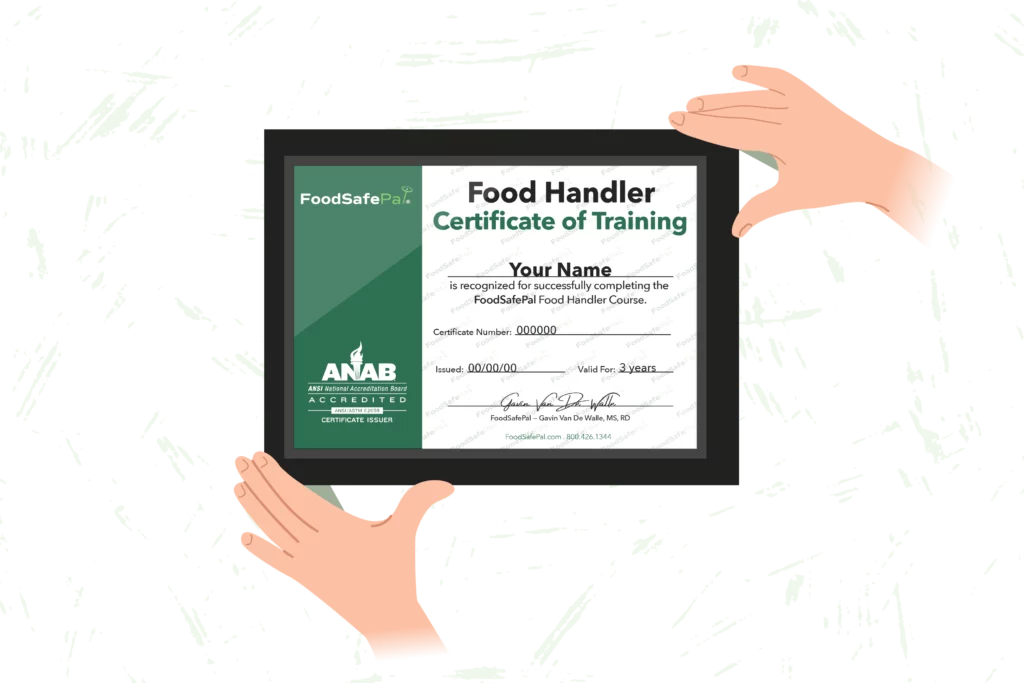
Get Your New York Food Handlers Card
Instant certificate. 100% online in about 90 minutes.
Summary
Food safety training isn’t required in New York, but completing a food handler course, such as FoodSafePal’s can boost your credibility, expand selling opportunities, and help ensure your homemade food is safe.
Labeling requirements
Every home-processed food in New York must include a label with specific information to keep consumers informed. Labels must be printed on each package before sale and include:
- The name and full address of the home processor
- The product’s common or usual name
- The list of ingredients in descending order by weight
- An allergen statement identifying any of the nine major allergens
- The net quantity of contents (by weight or volume)
- A disclaimer such as “Made in a Home Kitchen” or “Made at Home by [Name]” in at least 1/16-inch font size
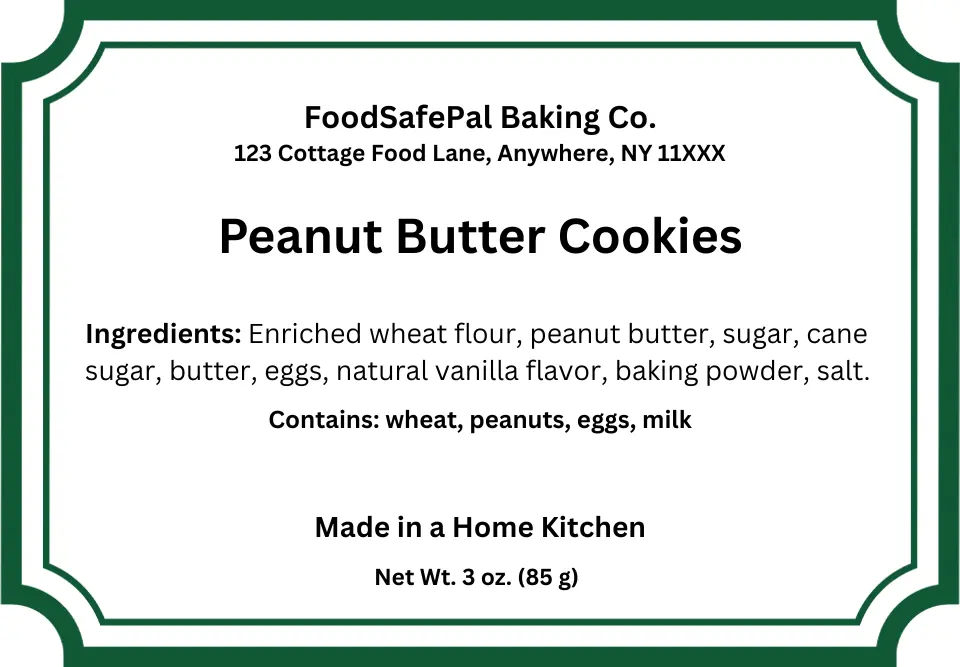
Summary
Labels for New York home-processed foods must include contact information, ingredients, allergens, and a “Made in a Home Kitchen” statement. Labels must appear on every package before sale.
The bottom line
New York’s Home Processor Exemption allows residents to make and sell certain shelf-stable foods from their home kitchen without needing a license, as long as products are properly labeled and sold within the state.
While food safety training isn’t required, earning your ANAB-accredited food handler card through FoodSafePal can give you an advantage by showing customers you take food safety seriously and helping you grow your business confidently.

Get Your New York Food Handlers Card
Instant certificate. 100% online in about 90 minutes.

